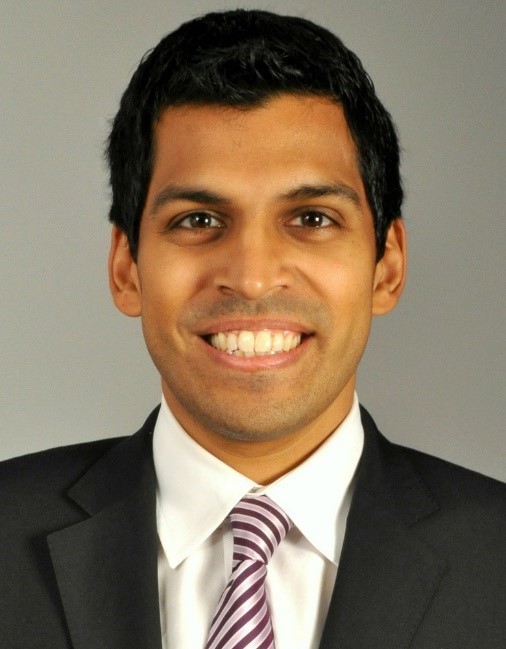
It's one thing for CEOs to be outspoken about business. It's their bailiwick. It's quite another when they speak out on social issues, opening themselves up to criticism that it is not directly related to the bottom line.
But that's exactly what they've been doing. Even in a world where environmental, social and governance (ESG) issues are in constant focus - backed by the United Nations with its Sustainable Development Goals, the World Economic Forum and the Business Roundtable - it's still been causing quite the stir.
A July 2020 Stanford University Corporate Governance Research Initiative paper characterizes taking political stands as social risks - “events that impair a company's social capital,” or “the goodwill or positive perception of a company among its stakeholders that contributes economic value.”
Authors David F. Larcker and Brian Tayan add that “the increased prevalence of social risk is coincident with the rise of ESG advocacy.” It magnifies the ever-evolving stakeholder capitalism mantra about commitments to employees, customers, clients, communities and more - in addition to shareholders and profits.
Is the CEO activism simply situational, in response to recent social unrest? Or is it perhaps suggestive of something bigger at play: a public expectation that CEOs should step up and assume more of a civic role as part of their responsibility to stakeholders?
Either way, CEO activism has implications for risk professionals, particularly with regard to reputational risk. Specifically: What's at stake when CEOs decide to cross the civil rights Rubicon, or, conversely, stay silent or backtrack?
“Moral and Principled”
“Stakeholder responsibility is extremely important to good leadership,” offers Alexander Stein, founder of Dolus Advisors, a consultancy that advises C-suite executives, board members and leaders around complex organizational issues.
“What it comes down to is moral and principled leadership, doing the right thing,” Dr. Stein says.
“Remaining silent and not taking a position is no longer an option,” notes Matthew Patsky, CEO and portfolio manager of the Boston-based, ESG-focused investment firm Trillium Asset Management. “A lot of investors, employees and customers aren't going to tolerate silence against obvious injustice.”
“If the brand is identified with a particular demographic, and a company says nothing, it may be worse than saying something,” Stein remarks.

Economic Transition
Monica O'Reilly, vice chair of Deloitte's U.S. Financial Services group and a principal in the Risk & Financial Advisory practice, views the trend and its risks in the context of “very challenging issues facing the global economy.”
She points to the “accelerated transition” from a “product-led economy” to one “based on being an ecosystem satisfying fundamental human needs and wants,” with customers now considered critical stakeholders. But, instead of taking three to five years, as O'Reilly initially expected, “it's been accelerating much faster than any of us could have predicted.”
“Institutions don't have to solve [problems] by themselves, but do have to step into the opportunity,” which she describes as working toward a “higher bottom line.”
Mounting Pressure
CEOs may always have weighed in on social issues to some degree, but it has happened more and more in the past year. The COVID-19 pandemic is a factor, as were the murder of George Floyd and the Black Lives Matter protests drawing attention to police brutality.
Duke University Fuqua School of Business professor Aaron “Ronnie” Chatterji, who's been studying CEO activism and was tapped in May to become the Department of Commerce's chief economist, last year led a LinkedIn Live series on fairness, justice and race.
Restrictive voting rights legislation in Georgia and several other states has riled up corporate leaders this year. Former CEOs Kenneth Chenault of American Express Co. and Kenneth Frazier of Merck & Co. led a collective response, taking out ads in the New York Times and Washington Post signed by hundreds of companies and executives.

Absent from that list, even though they were said to have voiced their opposition to the voting restrictions and/or their support for voting rights, were Coca-Cola Co.'s James Quincey, Delta Air Lines' Ed Bastian and JPMorgan Chase's Jamie Dimon. Warren Buffett signed on behalf of himself, not as head of Berkshire Hathaway. And Walmart's Doug McMillon, also the Business Roundtable chair, didn't sign, reportedly reasoning, “We are not in the business of partisan politics.”
Executives' Dilemma
“CEOs are increasingly being called upon to comment publicly on complex policy issues, yet the decision to get personally involved is a difficult one for most,” former Medtronic CEO and Harvard Business School senior fellow Bill George wrote in a May Fortune article. “From public issues like climate change, immigration, and BIPOC and LGBTQ rights to the murder of George Floyd and state voting laws, business leaders are learning the hard way that they will be criticized regardless of whether they speak out or remain silent.”
Fortune Media CEO Alan Murray's May 18 CEO Daily newsletter, on the most recent Fortune 500 survey results, cited that CEOs were “split right down the middle” when asked which of the following two statements they most identified with: “CEOs have a responsibility to speak out on important social and political issues and should continue to do so; or, CEOs have recently gotten too involved in commenting on social and political issues and need to pull back.”
Yet the 2021 Edelman Trust Barometer, based on an international survey and released in January, found CEOs to be the most capable to answer the call of helping to address societal concerns.
“There is a void in leadership that CEOs must fill,” Dave Samson, Edelman's vice chair of corporate affairs, stated in a press release. “It starts with a broader mandate for business that focuses societal engagement with the same rigor used to deliver on profits.” According to Edelman, more than eight out of 10 survey respondents “want CEOs to speak out on important social issues,” and more than two-thirds “expect them to step in when the government does not fix societal problems.”
Risk Appetites and Roadmaps
What are the risk management implications of this current climate of corporate and CEO engagement?
“I don't think there's a one-size-fits-all approach,” acknowledges James Lam, president of James Lam & Associates, who was chief risk officer at GE Capital Markets Services and Fidelity Investments in the 1990s and chaired the E*TRADE board risk committee until the firm was acquired by Morgan Stanley last year.
He believes companies need to begin with a “North Star,” or “concept of purpose and values.” With that they should put in place a - or revisit an existing - reputational risk policy, “starting with subjective, high-level qualitative statements and then translating them into objective metrics and setting the risk appetite around them.”
Critical in all of this, Lam adds, is “an understanding of what's important to stakeholders.”
“The pandemic has heightened this rising temperature for action,” Deloitte's O'Reilly observes. “For governments and corporations alike, the stakes have never been higher.”
“It's not about checking the box, but about a demonstrable shift and change,” she suggests. She expects to see more public-private partnerships going forward.
“There isn't a roadmap, per se,” she concedes, adding that “It's still being developed.” One thing is clear: “The role of the risk manager is becoming much more complicated.”
L.A. Winokur is a veteran business journalist based in the San Francisco Bay Area.